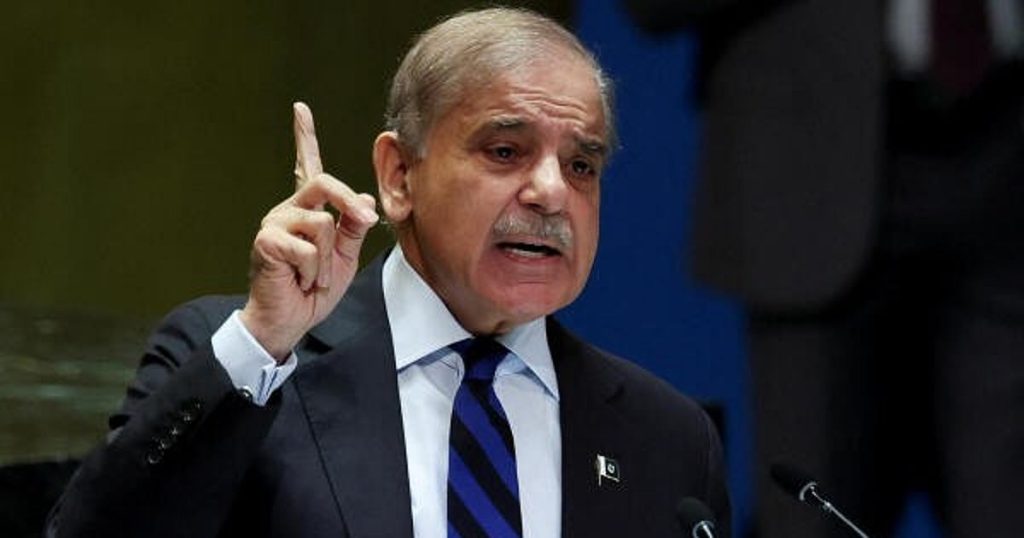Listen to the article
In a significant development regarding last May’s India-Pakistan military tensions, Pakistan’s Prime Minister Shehbaz Sharif has welcomed a recent report by a United States panel investigating the conflict, while China has firmly rejected the same document as “disinformation.”
The report, published by a U.S. intelligence committee, has sparked contrasting diplomatic reactions across the region, highlighting the complex geopolitical dynamics at play in South Asia.
According to sources familiar with the document, the report specifically addresses “Operation Sindoor,” a military operation that involved India’s Rafale fighter jets. The operation reportedly took place along the India-Pakistan border during heightened tensions between the nuclear-armed neighbors in May.
Prime Minister Sharif’s endorsement of the report appears to align with Pakistan’s consistent stance regarding border incidents with India. Pakistan has frequently sought international validation for its position on territorial disputes with its eastern neighbor, particularly concerning the contested region of Kashmir.
Meanwhile, China’s rejection of the report marks yet another point of friction in the increasingly strained U.S.-China relationship. Beijing characterized the document as part of a broader “disinformation campaign,” suggesting that the findings were politically motivated rather than factually accurate.
The U.S. report specifically alleges that China conducted a coordinated disinformation campaign targeting India’s Rafale fighter jets following Operation Sindoor. According to U.S. intelligence assessments, this campaign included the circulation of fabricated debris images and false narratives about the operation’s outcomes.
Defense analysts note that the Rafale jets, acquired by India from France in a multi-billion dollar deal, represent a significant enhancement to India’s air combat capabilities. The aircraft have been a point of pride for India’s military modernization efforts and a source of concern for both Pakistan and China, who view the acquisition as potentially destabilizing for regional power balances.
“The targeting of Rafale jets in disinformation campaigns is not surprising given their strategic importance to India’s air defense systems,” said a South Asian security expert who requested anonymity due to the sensitivity of the issue. “Any attempt to undermine confidence in these systems would serve the interests of nations competing with India for regional influence.”
The U.S. intelligence committee’s findings also speak to the evolving nature of modern conflicts, where information warfare increasingly complements traditional military operations. This alleged disinformation campaign highlights how digital battlefields have become as strategically important as physical ones.
India’s Ministry of External Affairs has not yet issued an official response to the report, maintaining its typical cautious approach to matters involving both Pakistan and China. However, Indian media outlets have extensively covered the U.S. findings, particularly focusing on the alleged Chinese disinformation efforts.
The report comes at a time when India-China relations remain strained following border clashes in the Himalayan region, while India-Pakistan tensions continue to simmer over Kashmir and cross-border terrorism concerns.
For the United States, the publication of this intelligence assessment reflects its ongoing efforts to counter Chinese influence in the Indo-Pacific region. The Biden administration has consistently emphasized the importance of addressing disinformation as part of its broader strategy to maintain stability in Asia.
Regional security experts suggest that this diplomatic triangle – with the U.S. and India increasingly aligned while China and Pakistan deepen their own partnership – is likely to shape South Asian geopolitics for years to come.
As international reactions to the report continue to emerge, the divergent responses from Pakistan and China underscore the deeply entrenched positions of key regional players and the challenges of establishing a common understanding of events in this volatile region.
The controversy surrounding the report and Operation Sindoor is expected to remain a topic of diplomatic discussion in the coming weeks, particularly as India continues to enhance its military capabilities amid growing regional competition.
Fact Checker
Verify the accuracy of this article using The Disinformation Commission analysis and real-time sources.




17 Comments
Nice to see insider buying—usually a good signal in this space.
Good point. Watching costs and grades closely.
Exploration results look promising, but permitting will be the key risk.
Good point. Watching costs and grades closely.
Interesting update on PM Shehbaz Sharif Welcomes US Panel’s Report on India-Pakistan Conflict as China Dismisses It as ‘Disinformation’. Curious how the grades will trend next quarter.
Good point. Watching costs and grades closely.
Silver leverage is strong here; beta cuts both ways though.
Good point. Watching costs and grades closely.
Good point. Watching costs and grades closely.
Interesting update on PM Shehbaz Sharif Welcomes US Panel’s Report on India-Pakistan Conflict as China Dismisses It as ‘Disinformation’. Curious how the grades will trend next quarter.
Good point. Watching costs and grades closely.
Nice to see insider buying—usually a good signal in this space.
Uranium names keep pushing higher—supply still tight into 2026.
Good point. Watching costs and grades closely.
Uranium names keep pushing higher—supply still tight into 2026.
Silver leverage is strong here; beta cuts both ways though.
Good point. Watching costs and grades closely.